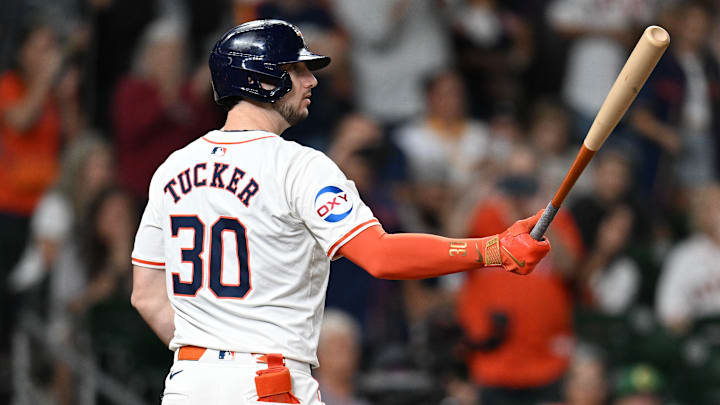Bellinger Trade: D+
Cody Bellinger has been the Cubs' primary center fielder since 2023, and it was and the team found themselves in an awkward spot after Bellinger opted back into his $25 million salary. Things looked even more crowded after Hoyer traded for Tucker, and Bellinger proved to be the odd man out.
The Cubs sent him to the New York Yankees on December 18, which was effectively a move to get Bellinger's contract off the 2025 payroll. The Cubs ate $5 million in the deal and received a marginal return of depth starting pitcher Cody Poteet. It's the kind of move that makes it frustrating to be a Cubs fan because it proved the team is completely willing to part with one of its best players to stay comfortably below the competitive balance tax threshold (CBT).
It didn't have to be that way given the Cubs had the third-highest revenue in 2023, but here we are. What makes matters worse is that the team was supposed to reallocate the money from Bellinger's deal but that hasn't happened yet. The 2025 payroll is still about $40 million below the $241 million CBT, and it looks like the team is finished making major additions to the roster. Maybe if the Cubs had been able to sign third baseman Alex Bregman, the Bellinger move would feel different. But right now it just makes ownership look stingy and unwilling to make financial sacrifices to win.
Matthew Boyd signing: D
Unfortunately, signing Matthew Boyd has been the most consequential starting pitching acquisition by the Cubs this offseason. At the time of this writing, we're about two and a half months out from the news of this deal dropping, and I'm still trying to wrap my head around it.
Hoyer is banking on a 34-year-old pitcher, who has not been able to stay healthy for more than half a season's worth of games since 2019. These were serious elbow issues that resulted in two surgeries. I don't understand how this warrants a two-year contract worth $29 million, especially when Boyd's only meaningful success came in just 11 starts with the Cleveland Guardians last year.
Boyd was great in that span, with a 2.28 ERA over 11 starts. But this is a very small sample size (51.1 Innings) to put as much stock into as the Cubs are. Boyd is in line to take the team's fourth starting rotation spot and it's hard to imagine him giving the team more than 100 innings in 2025. I might feel differently if another reliable starter was added to the rotation this offseason, but that didn't happen. Prior to the regular season, this contract looks pretty bad.
Colin Rea signing: D+
The other starting pitching acquisition was signing Colin Rea to a one-year deal ($5 million). Rea has spent the last two seasons shifting in and out of the Milwaukee Brewers rotation, with a 4.40 ERA in 292.1 innings pitched.
At his best, Rea can be an inning-eating fourth or fifth-starting pitcher, which is fine. But similar to Boyd, this is not the kind of starting pitcher the Cubs need right now. Along with Poteet, Javier Assad, Ben Brown, and Jordan Wicks, Rea joins a long list of depth starters who can pitch long relief out of the bullpen. He doesn't fit the bill of a number 1 or 2 starter that the team could use to complete a deep pitching group.
This contract just misses the mark and reflects the frustrating nature of this iteration of the Chicago Cubs. They will acquire a good player if they can work around their self-imposed obstacles, but they are unwilling to break the bank for a top-shelf starting pitcher like Corbin Burnes or Max Fried.
